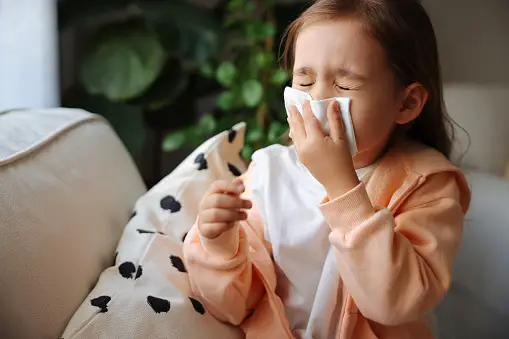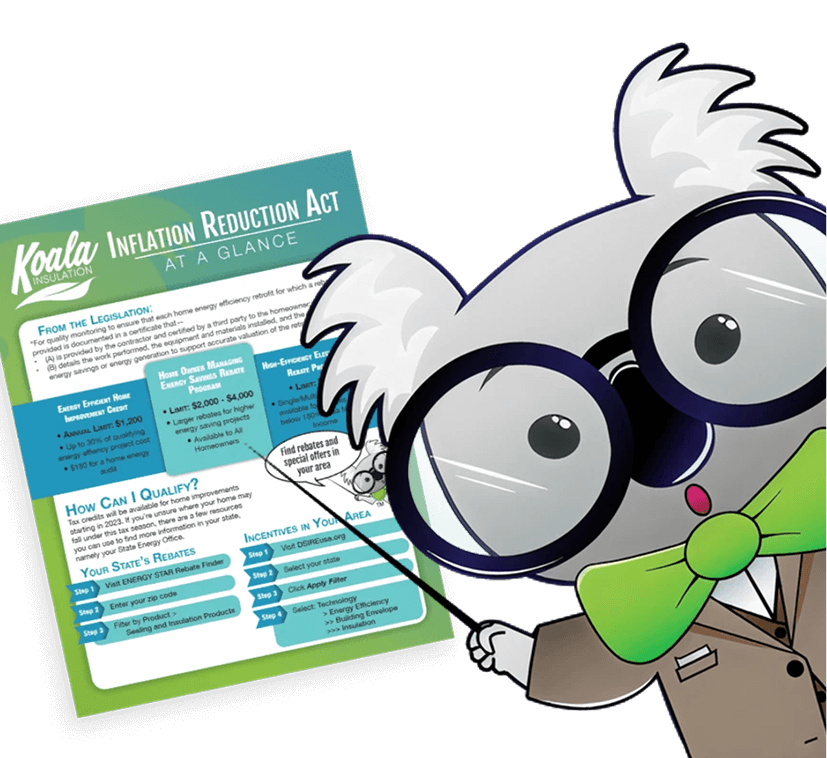The Connection Between Insulation and Indoor Air Quality in Winter

As winter sets in, most homeowners focus on staying warm and reducing heating bills. While proper insulation plays a significant role in keeping your home comfortable and energy-efficient, it also has a direct impact on another critical factor: indoor air quality.
At Koala Insulation of Greater Charlotte, we know that insulation does more than regulate temperature—it also affects the air you breathe. Poor insulation can lead to drafty spaces, excess moisture, and even an increase in allergens or pollutants inside your home. Let’s explore the connection between insulation and indoor air quality, and how upgrading your insulation can make your home healthier this winter.
How Insulation Affects Indoor Air Quality
Insulation serves as a barrier that regulates temperature, reduces drafts, and helps maintain a consistent indoor environment. However, its effects go beyond comfort and energy savings. Here’s how insulation impacts your home’s air quality:
- Reduces Air Leaks
Gaps in insulation allow outdoor air to enter your home. During winter, these leaks can bring in pollutants, allergens, and moisture. By properly insulating your home, you minimize air leaks and improve the quality of the air inside.
- Prevents Moisture Buildup
Poor insulation can allow moisture to seep into your home, leading to high humidity levels. Excess moisture creates the perfect environment for mold and mildew, which release spores that can negatively affect indoor air quality.
- Improves Ventilation Efficiency
Good insulation works in tandem with your HVAC system to maintain a controlled environment. This helps your ventilation system filter and circulate clean air more effectively.
- Blocks Outdoor Pollutants
Insulation acts as a barrier, preventing dust, pollen, and other pollutants from entering your home through walls, attics, and crawl spaces.
Signs Your Insulation May Be Affecting Your Indoor Air Quality
Not sure if your insulation is contributing to poor indoor air quality? Here are some warning signs to watch for:
- Drafty Areas
Drafts near windows, doors, or walls often indicate gaps in insulation, allowing outdoor air to infiltrate your home.
- High Humidity or Condensation
If you notice condensation on windows or high humidity levels, your insulation may not be effectively managing moisture.
- Musty Odors
A musty smell in your home could be a sign of mold or mildew, often caused by poor insulation and excess moisture.
- Increased Allergies or Respiratory Issues
If family members experience worsened allergy or asthma symptoms during the winter, your insulation may be allowing allergens and pollutants into your home.
- Cold Spots
Uneven temperatures and cold spots in your home are a clear indicator of inadequate insulation, which can also impact air quality.
Insulation Upgrades to Improve Indoor Air Quality
Improving your home’s insulation is one of the most effective ways to enhance indoor air quality. Here are some key areas to focus on:
1. Attic Insulation
The attic is a major source of air leaks and heat loss. Upgrading attic insulation prevents outdoor air from seeping in and keeps your home’s air clean and fresh. Options like spray foam insulation and blown-in insulation are excellent choices for sealing gaps and improving thermal performance.
2. Wall Insulation
Insulating walls helps block pollutants, allergens, and drafts from entering your living spaces. Fiberglass batts or blown-in insulation can be installed to improve both temperature regulation and air quality.
3. Crawl Space Insulation
Crawl spaces are often overlooked but play a crucial role in indoor air quality. Proper insulation and vapor barriers in crawl spaces reduce moisture buildup and block contaminants from entering your home.
4. Duct Insulation
Your ductwork circulates air throughout your home, so it’s essential that ducts are well-insulated and sealed. This prevents dust, debris, and pollutants from spreading via your HVAC system.
The Benefits of Better Insulation for Indoor Air Quality
Upgrading your insulation offers several benefits that directly impact the air you breathe:
- Healthier Living Environment
By reducing moisture, blocking pollutants, and eliminating drafts, better insulation creates a cleaner, healthier indoor environment for you and your family.
- Allergy Relief
Proper insulation helps reduce the entry of allergens like pollen, dust, and mold spores, improving symptoms for those with allergies or asthma.
- Consistent Indoor Conditions
A well-insulated home maintains stable temperatures and humidity levels, reducing the likelihood of mold growth and other air quality issues.
- Energy Efficiency
Improved insulation not only enhances air quality but also reduces energy consumption, resulting in lower heating bills and a smaller carbon footprint.
Why Work with Koala Insulation of Greater Charlotte?
At Koala Insulation of Greater Charlotte, we understand that insulation is about more than just comfort—it’s about creating a healthy, energy-efficient home. Our team of experts provides high-quality insulation solutions tailored to your needs, helping you improve indoor air quality and overall well-being.
We offer:
- Comprehensive home assessments to identify problem areas.
- Expert installation of attic, wall, and crawl space insulation.
- Top-quality materials like spray foam, blown-in insulation, and fiberglass batts.
Additional Tips to Improve Indoor Air Quality in Winter
In addition to upgrading your insulation, here are a few tips to further enhance indoor air quality during the colder months:
- Use a Humidifier
Maintain optimal humidity levels (30-50%) to prevent excess dryness without creating an environment for mold growth.
- Change HVAC Filters Regularly
Dirty filters can circulate dust and allergens, so replace them every 1-3 months for clean indoor air.
- Seal Air Leaks
Use caulk or weatherstripping to seal gaps around doors, windows, and baseboards.
- Ventilate Properly
Ensure your home has adequate ventilation, particularly in areas prone to moisture, like bathrooms and kitchens.
Call Us for a Free Estimate Today
Are you ready to improve your indoor air quality and create a healthier home this winter? Contact Koala Insulation of Greater Charlotte today to schedule a free insulation assessment.
Call us at (704) 558-3107 or visit our website at https://koalainsulation.com/f/Greater-Charlotte to learn more about our services and request a free estimate.
With expert insulation solutions from Koala Insulation of Greater Charlotte, you can enjoy a warmer, healthier, and more energy-efficient home this winter and beyond!
Find Your Location


Get a quote



